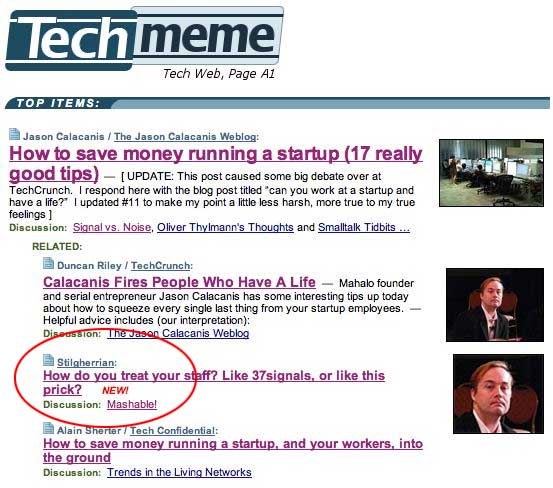[Update 10 March, 1030 AEDT: I’ve written a follow-up article which, while bound to piss off a few people, explains precisely why I’m so concerned about this issue.]
…but I don’t know whether this was exactly what I had in mind. Calling a high-profile Internet entrepreneur a prick, and then being referenced by some of the highest-traffic tech blogs on the planet.

OK, I participated in the discussion at TechCrunch and the 37signals blog Signal vs Noise, as I should. But then it was picked up by Mashable and then TechMeme (see screenshot). And now I’m seeing inbound from TechCrunch Japan and Colbert Low’s technology blog and who knows where else to come.
Continue reading “Well, I wanted some profile before Australia 2020…”
